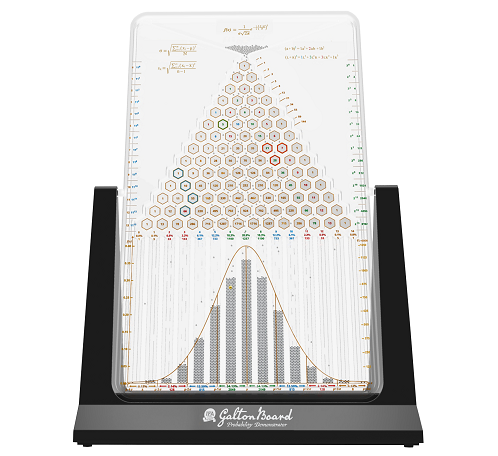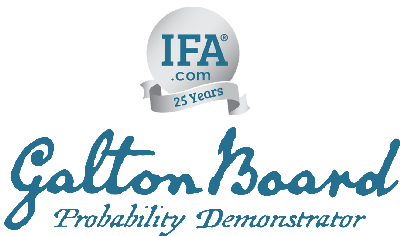IFA is often in a position of accommodating regular cash withdrawals by its clients. From an operational point-of-view, the question becomes one of how best to generate cash for such withdrawals.
In our process, some important general considerations we keep in-mind for clients include the following:
- Minimization of Transaction Costs: Charles Schwab and Fidelity each charge unique amounts to process client trades. These prices can range greatly, depending on the particular custodian and individual circumstances. IFA's strict policy is to minimize trading costs for clients whenever possible.
- Cash Drag: Yields on money market cash shouldn't be expected over time to generate as much as an investment in longer-term fixed-income funds. The difference, of course, is the amount of risk you're willing to take. Money market cash savings are typically offered for safety and minimizing exposure to market fluctuations. While all of the IFA Index Portfolios have a positive expected return, the actual realized return over any short period (say three- to six-months) can be positive or negative with almost equal probability. As a result, the decision to hold more cash than needed will often appear to be prudent in hindsight (after a period of negative returns). The goal of maximizing a client's long-term ending wealth, however, dictates that IFA should strive to minimize cash drag whenever possible.
- Minimization of Taxes: Please consult a tax professional about your unique situation. Also, it's probably worth pointing out that we now offer in-house support through IFA Taxes, which includes expertise in tax filing and business-related tax issues. The bottom line, however, is that the U.S. tax code continues to evolve and courts keep issuing new rulings in legal cases impacting individual tax applications. This means that many of our clients in any given tax year will face nuanced questions concerning how best to minimize tax hits on items such as qualified dividends and long-term capital gains — as well as how best to maximize deductions. For investors who take advantage of our tax-loss harvesting process during a period of market downturn, for example, loss carry-forwards can be used to offset capital gains.
- Risk Maintenance: One of IFA's primary (if not the single most important) duties is to keep clients at- or below- the risk level that they agreed to in their investment policy statement. Every single time a portfolio is traded, the risk level is evaluated, and the trades are chosen to align the risk exposure of the portfolio with the risk capacity of the client. This is done with an eye on the three points above.

There are a few possible ways of addressing cash needs:
Take Cash Dividends
Normally, IFA doesn't encourage clients to rely on dividends because these are very uneven — in fact, they're heavily weighted towards December — and this source of payouts can be considered as a somewhat unreliable source of cash. The reason for this is that Dimensional Fund Advisors and the other fund families our investment committee prefers to utilize take steps to minimize cash distributions in their broadly diversified and long-term focused investment strategies, since these represent taxable events and don't necessarily increase shareholder wealth.
One example of how they accomplish this is by hedging currency risks in their global fixed-income funds. If the value of the hedging instrument decreases, it will be used as an offset to interest income on the bonds held, and the resulting cash dividend will be decreased or perhaps not even paid.
The taxes owed on dividends are the same regardless of whether they're reinvested. If the dividends are reinvested, the cost basis is increased by the amount of the re-investment. If the dividend-paying mutual fund is partially sold to generate cash, the shares that were purchased via re-investment would not be the shares that are sold — assuming first-in first-out accounting. If the dividend paying mutual fund is completely sold immediately after reinvestment of dividends, there would be no capital gains on the newly purchased shares (other than the market movement that occurred between the reinvestment and the sale).
To summarize, for a mutual fund that is either left untouched or completely sold, taking dividends in cash will not result in lower taxes. If however, a partial sale of appreciated shares can be avoided by taking dividends in cash, then this may be the appropriate course of action.
The primary advantages of taking cash dividends are the avoidance of transaction costs to sell and the avoidance of realized capital gains, particularly if FIFO accounting is used. These advantages come at the cost of cash drag, especially in December, and perhaps losing control over the risk level of the portfolio. Specifically, REITs and fixed-income will normally deplete faster than equities because of their higher yields.
Sell to Create Cash
Mutual funds could be sold to create cash on a regular basis, say once every two months. The number of trades could be plausibly limited, depending on the size of the account, to one trade for each time cash is raised. This would limit the annual trading costs. This strategy would minimize cash drag, as there would usually not be more than a single month's worth of cash outstanding — assuming that the trades are placed fairly close to the withdrawal date.
A General Method
When creating cash for regular withdrawals, IFA examines the estimated trading costs and cash drag for various withdrawal scenarios between two- and six-months. To do this IFA requires the following inputs:
- IFA Index Portfolio™ Number
- Portfolio Value
- Regular Withdrawal Amount and Frequency
- Cost per trade
- Expected Return of Portfolio
- Expected Return of Cash
- Minimum Trade Size
Using these inputs IFA determines how much cash to create.
For example, if the client withdraws $10,000 a month, IFA will examine creating $20,000 every two months, $30,000 every three months, $40,000 every four months, etc. up to six months. Each scenario is analyzed according to trading costs (both transaction costs paid to the custodian and the additional cost of tracking and reporting the trades to the IRS) and estimated cash drag.
IFA will then create cash for the number of monthly withdrawals that minimizes estimated cost. However, we must bear in mind that cash drag is uncertain. IFA does not claim that it knows beforehand how to produce the optimal outcome.

This is not to be construed as an offer, solicitation, recommendation, or endorsement of any particular security, product or service. There is no guarantee investment strategies will be successful. Investing involves risks, including possible loss of principal. Data is provided for illustrative purposes only, it does not represent actual performance of any client portfolio or account and it should not be interpreted as an indication of such performance. IFA Index Portfolios are recommended based on time horizon and risk tolerance. Take the IFA Risk Capacity Survey (www.ifa.com/survey) to determine which portfolio captures the right mix of stock and bond funds best suited to you. For more information about Index Fund Advisors, Inc, please review our brochure at https://www.adviserinfo.sec.gov/ or visit www.ifa.com.














